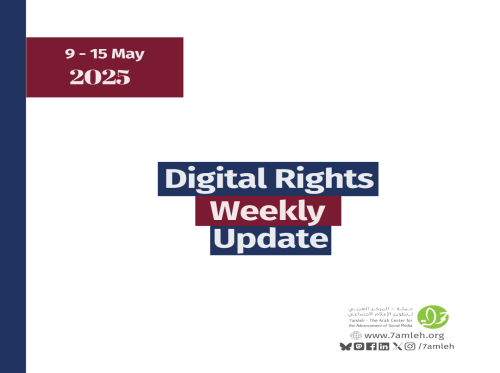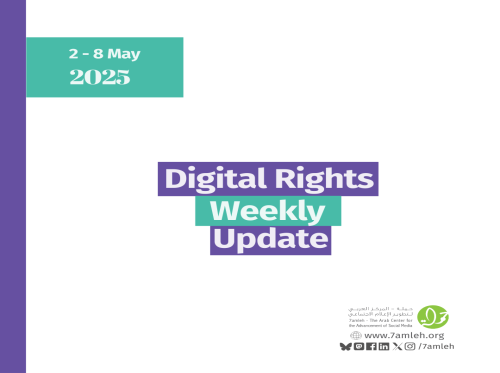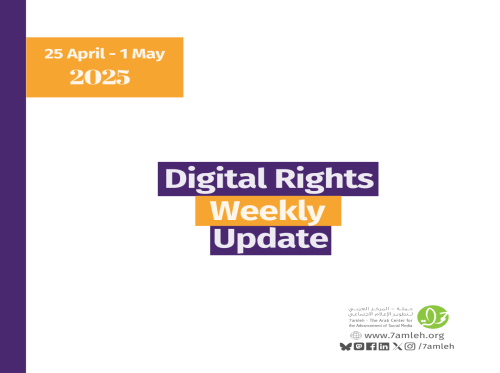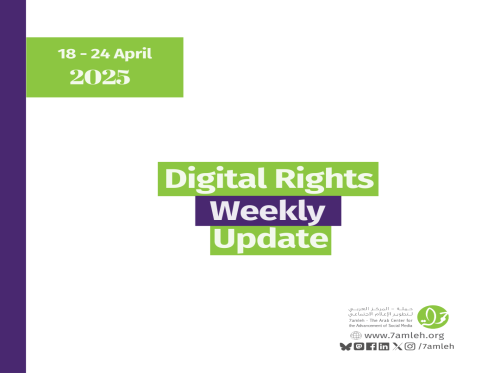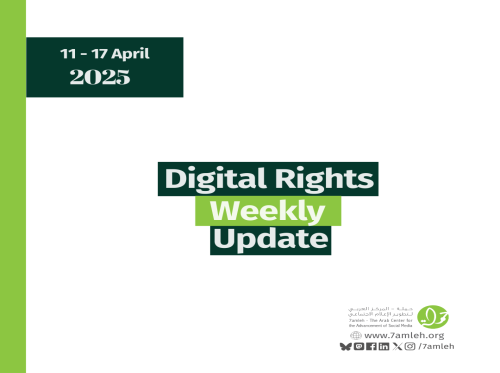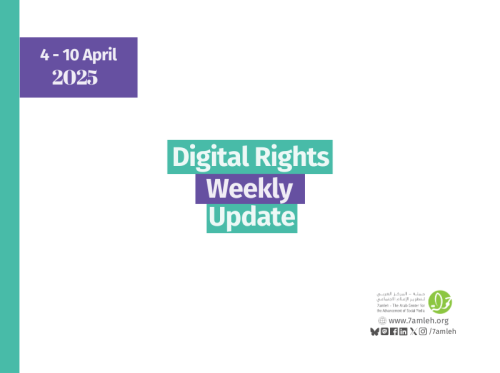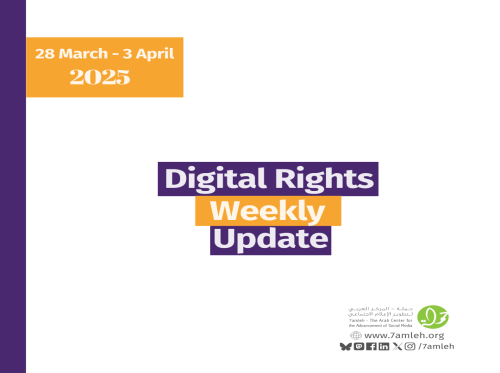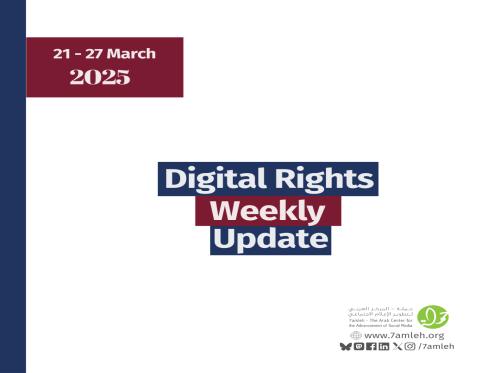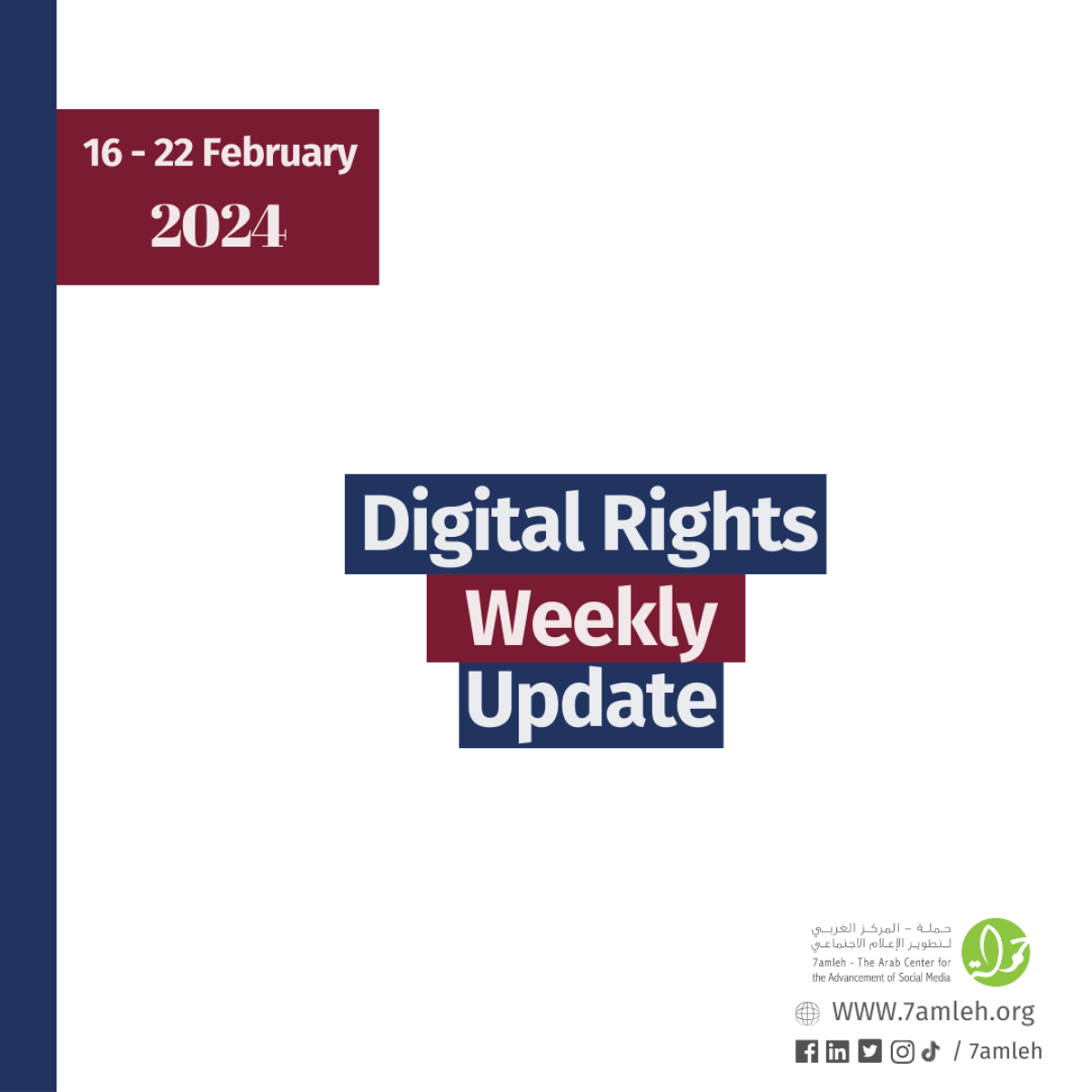
1.
7amleh Releases Position Paper on AI Technologies Impact On Palestinian Lives and Narratives (English)
7amleh
7amleh - The Arab Center for the Advancement of Social Media published its new position paper “Impacts of AI Technologies on Palestinian Lives and Narratives” shedding light on the alarming lack of oversight and regulatory frameworks surrounding AI deployment, emphasising the dire consequences for Palestinians and Palestinian human rights advocates. The paper, authored by the writer and journalist Dr. Ameera Kawash in collaboration with 7amleh, explores the intersection of AI technologies with existing power structures, underscoring their potential to exacerbate inequalities and violate human rights on a global scale. It also offers a comprehensive overview of the specific dangers faced by Palestinians due to the integration of AI into communications, surveillance, and military applications.
2.
Defeating Censorship – How Palestine Chronicle Climbed the Google Ladder to Reach Millions (English)
Palestine Chronicle
On February 15, Palestine Chronicle topped Google search on several keywords related to Palestine, including ‘Palestinian Newspaper English’ and ‘Palestinian newspapers’. Also, on the same day, it became the second result under the more encompassing category of ‘Palestine News’, following Al Jazeera. Additionally, the Palestine Chronicle continues to compete with leading news organizations, including The New York Times, Al Jazeera, and many others, for top spots on Google search results related to Palestine and Palestinian news.
3.
‘Breaking the mould’: How Facebook became the NYT of the digital age (English)
Middle East Monitor
In other words, social media platforms are replicating the old mainstream media behaviour that controlled the flow of information since the invention of the printed press sometime in the 15th century. They are highly politicised, business-driven and even ideological. They promote Western interests; they care little for Palestine and they see Western thought as superior to all others. Though it will take more time for social media giants to find a permanent position with existing power structures, they will eventually get there.
4.
It’s not a glitch: how Meta systematically censors Palestinian voices (English)
Access now
This latest wave of censorship, which coincides with “apocalyptic” violence in the Gaza Strip and stark warnings of genocide from the UN and the International Court of Justice (ICJ), adds to Meta’s long history of systematically censoring Palestine-related content. While the company has stated that it’s never their “intention to suppress a particular community or point of view,” our documentation points to the opposite conclusion. This pattern of censorship is no glitch. In this report, we show how Meta is systematically silencing the voices of both Palestinians and those advocating for Palestinians’ rights. We delve into the roots of this censorship, highlighting how the company must overhaul its rights-violating and discriminatory content moderation policies and take action to avoid complicity in alleged war crimes, crimes against humanity, and genocide.
Related Articles
Subscribe to Our Email Alerts
And stay updated with our latest activities, news, and publications!

